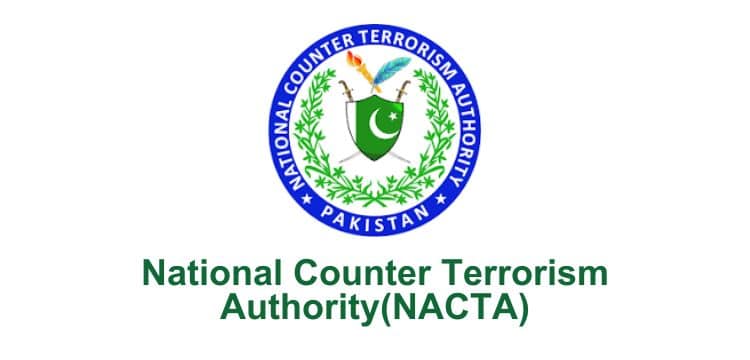[vc_row][vc_column][vc_column_text dp_text_size=”size-4″]The National Counter Terrorism Authority (NACTA) has been a pivotal force in Pakistan’s fight against terrorism since its establishment in 2008. Functioning as a dynamic organization since 2013, NACTA has played a crucial role in developing guidelines for counter-terrorism and enhancing coordination among various agencies dedicated to this cause.
NACTA serves as the primary coordinating body for all counter-terrorism initiatives in the country, working in collaboration with law enforcement agencies, intelligence organizations, and other stakeholders. Its mandate includes formulating policies, collecting and analyzing intelligence, and implementing strategies to prevent and respond to terrorist threats.
Strategy to Prevent Terrorist Incidents
NACTA has adopted a comprehensive strategy to prevent terrorist incidents in Pakistan. This strategy encompasses intelligence-based operations, countering violent extremism, and disrupting terrorist financing networks. NACTA has also emphasized the importance of engaging communities and promoting counter-narratives to challenge extremist ideologies. By addressing the root causes of radicalization and extremism, NACTA aims to create a more resilient society capable of withstanding the influence of terrorist groups.
Nacta’s Charter
NACTA is chartered to create a robust blueprint to counter terrorism, fostering synergy among diverse agencies dedicated to this cause. The need for NACTA’s intervention arises from the alarming surge in terrorist activities across Pakistan. As per its legal mandate, NACTA is entrusted with the following duties:
- Gather, compile, and share intelligence and information among stakeholders for regular threat assessments.
- Coordinate and draft comprehensive national strategies for counter-terrorism and counter-extremism, subject to periodic evaluation.
- Develop and execute action plans against terrorism and extremism, reporting progress to the Federal Government.
- Undertake research on pertinent topics concerning terrorism and extremism.
- Foster international collaboration, liaising with global entities to facilitate cooperation in counter-terrorism and extremism-related areas.
- Evaluate existing laws and recommend amendments to the Federal Government.
- Appoint committees comprising experts to deliberate on matters pertinent to the Authority’s mandate.
Internal Strategy Development
One crucial measure of NACTA’s effectiveness lies in its ability to construct a comprehensive internal strategy aimed at preempting terrorist incidents. Assessing the intricacies of these internal strategies reveals the resilience of their preventive measures.
Coordination with Foreign Counter-Terrorism
Recognizing the global nature of terrorism, NACTA has actively engaged in fostering international cooperation with foreign counter-terrorism agencies. This collaboration has involved intelligence sharing, joint training programs, and coordinated operations to address transnational terrorist threats. By working closely with foreign counterparts, NACTA has contributed to strengthening the global network for combating terrorism and preventing its spread across borders.
Empowering the Criminal Justice System (CJS)
NACTA’s proposed amendments, such as the Criminal Laws Amendment Act 2016, and efforts to rejuvenate all facets of the CJS depict a comprehensive roadmap for refurbishment.
Financing
Proactive steps in drafting a bill for charities’ regulation and collaborating with agencies aim to regulate cross-border cash movement and enhance vigilance in the banking sector.
Engaging Madaris and Tackling Cyber-Terrorism
Efforts to engage Madaris and initiatives like Cyber Security and ICT Directorate underscore NACTA’s diverse approaches, including a cyber-counter-terrorism strategy.
National Narrative and Counter-Extremism Policy Guidelines
The formulation of the National Narrative on extremism and Counter-Extremism Policy Guidelines showcases NACTA’s commitment to ideological warfare against extremism.
Challenges and Road Ahead
Despite strides, NACTA faces challenges in operational effectiveness, political ownership, and financial support. Addressing issues within police departments and fostering inclusivity in task forces are crucial for enhanced performance.
NACTA has been instrumental in strengthening Pakistan’s counter-terrorism efforts through its performance, functions, and strategy to prevent terrorist incidents. Its coordination with foreign counter-terrorism agencies has contributed to bolstering international cooperation in combating terrorism.
While NACTA has made progress in coordinating joint counter-terrorism strategies among intelligence agencies in Pakistan, ongoing efforts are essential to further enhance collaboration and address the evolving challenges posed by terrorism and extremism.[/vc_column_text][/vc_column][/vc_row]











